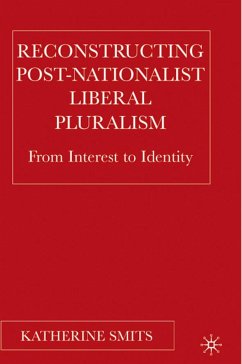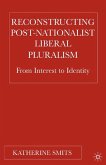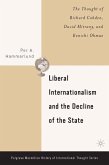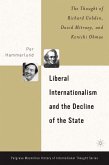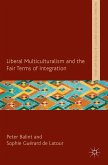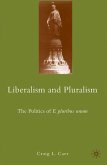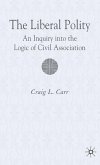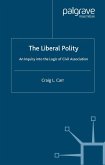This book examines liberal theory's attempts to accommodate pluralism, asking two fundamental questions: 1. How and why have theorists based their defences and proposed revisions of liberal pluralism upon particular and contestable definitions of what is the relevant and significant plurality? 2. Can a revised liberal pluralism account for the political significance of sub-national identity group membership?
'One of the most pressing issues for contemporary democracies is how to understand and accommodate the plurality of groups that constitute modern life. Examining the works of John Stuart Mill, Dahl, Rawls, Kymlicka, and other prominent theorists of liberal pluralism, Smits shows that all too often groups have been conceived as merely expressing alternative interests or moral perspectives. In contrast, because of the role of groups in the formation of personal identity, the author convincingly argues that many groups are making a claim for recognition of the authenticity of their identity, as a precondition for securing a legitimate voice in public affairs. This approach helps us understand what is really at stake, for example, in struggles over Islamic dress in public schools in France. Smits's book is engaging, timely, and deeply illuminating.'
- John F. Sitton, author of Habermas and Contemporary Society
"Smits performs the valuable services of situating recent debates about liberal pluralism and liberal multiculturalism in the context of 19th-century liberal thought; of reminding readers of the institutional and sociological flexibility of liberalism, the diversity of the resources available within liberal political thought; and of recovering some of what was obscured in the liberal tradition by the twinned turns to the nation and to the state."
- Jacob T. Levy, University of Chicago
- John F. Sitton, author of Habermas and Contemporary Society
"Smits performs the valuable services of situating recent debates about liberal pluralism and liberal multiculturalism in the context of 19th-century liberal thought; of reminding readers of the institutional and sociological flexibility of liberalism, the diversity of the resources available within liberal political thought; and of recovering some of what was obscured in the liberal tradition by the twinned turns to the nation and to the state."
- Jacob T. Levy, University of Chicago

